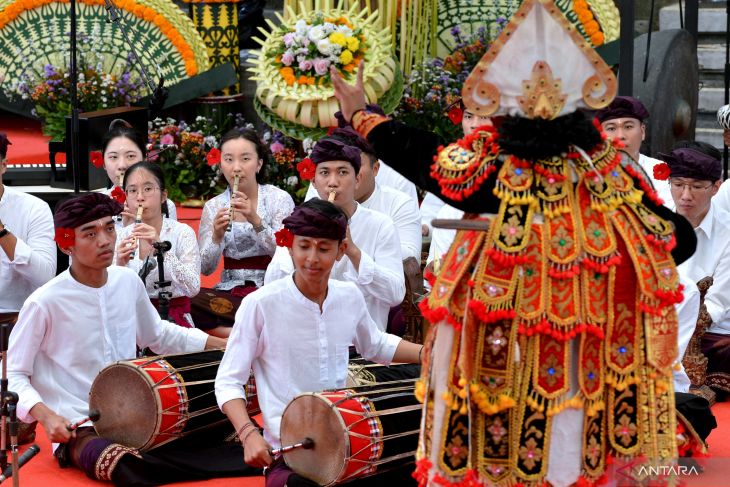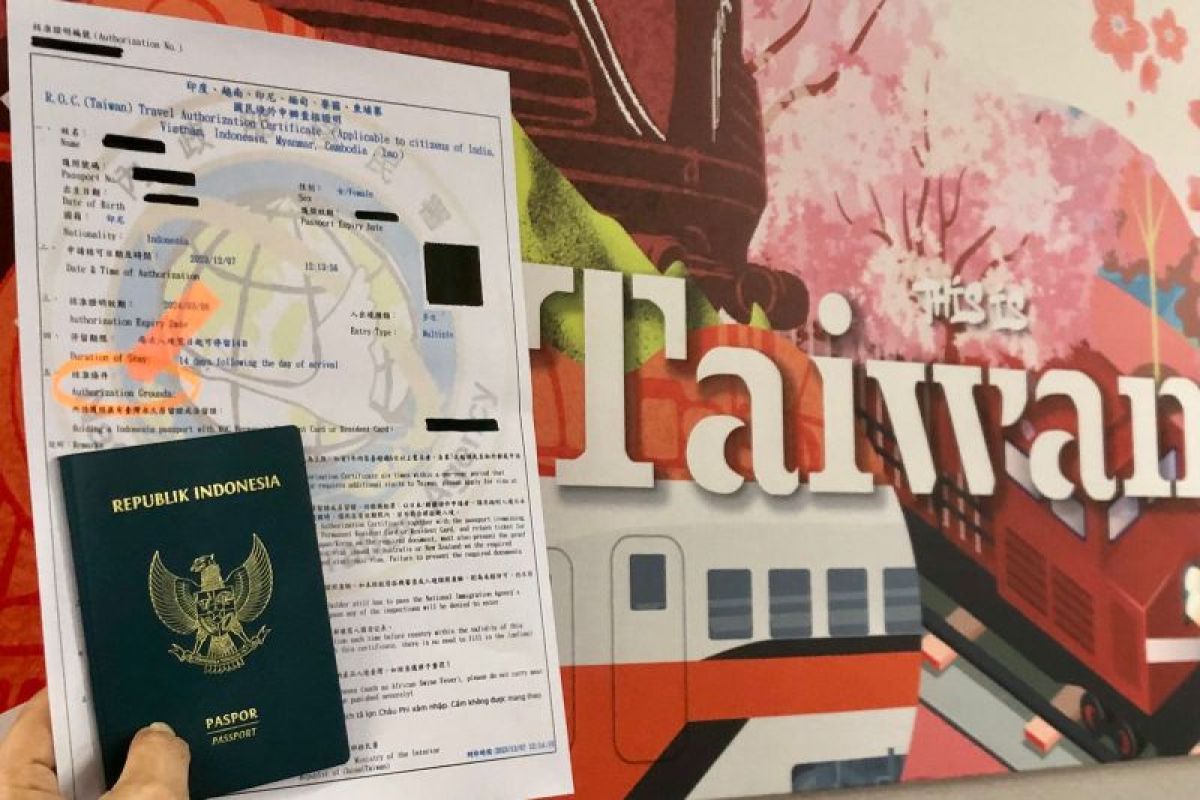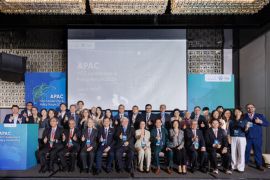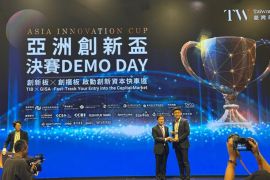As two dynamic players in Asia’s economic landscape, their partnership is built on complementary strengths, with Indonesia’s abundant natural resources and vast market and Taiwan's advanced technological expertise and manufacturing capabilities.
Over the years, this collaboration has evolved beyond traditional trade, encompassing investment, industrial development, and cutting-edge sectors, such as renewable energy and digital technology.
Together, Indonesia and Taiwan are forging a strategic alliance that promises mutual prosperity and long-term sustainability.
Rich in natural resources that are in high demand, such as palm oil and coal, Indonesia has been the only Southeastern Asian country that makes Taiwan run a trade deficit in the past few years.
On account of its advantage in resources, Indonesia has attracted about 10 thousand Taiwanese businesspersons and technicians to work in Indonesia. In addition, more than two thousand Taiwanese-funded enterprises are setting up their branches in Indonesia.
Since signing the Agreement for the Promotion and Protection of Investments in 1990 and the Agreement for the Avoidance of Double Taxation and the Prevention of Fiscal Evasion in 1995, Taiwan has always been an important economic partner for Indonesia.
According to Taiwan’s customs statistics, the total trade between Taiwan and Indonesia in 2023 amounted to US$10.421 billion (around Rp161 trillion), a decrease of 27.76 percent from 2022, placing Indonesia as Taiwan’s 13th-largest trading partner.
Indonesia’s exports to Taiwan mainly involve palm oil, coal, and natural rubber, while Taiwan’s exports to Indonesia include electronic products, machinery, and textiles.
Within the total trade amount, Indonesia’s exports to Taiwan in 2023 were worth US$7.4 billion (around Rp115 trillion), a decrease of 33.91 percent from 2022, with Taiwan running a trade deficit of US$4.4 billion (around Rp68 trillion), making Indonesia the 12th-largest importer of Taiwan.
The major items from Indonesia to Taiwan, in the order of importance, include mineral fuels, at 36 percent; iron and steel, at 30 percent; and electrical machinery, equipment, parts thereof, at 5 percent.
On the other hand, in 2023, Taiwan’s exports to Indonesia amounted to US$3 billion (around Rp46 trillion), making it Taiwan’s 17th-largest exporter.
The major export items in order of importance were electrical machinery and equipment and parts thereof at 18 percent; machinery and mechanical appliances, 14 percent; plastics and products thereof, 10 percent; and iron and steel and mineral fuels, respectively at 7 percent.
According to the Deputy Representative of the Taipei Economic & Trade Office in Indonesia (TETO), Sheng-Peng Chen, being the only Southeast Asian country that is a G20 member, Indonesia has always been considered the leader of the Association of Southeast Asian Nations (ASEAN), with a population of 270 million and GDP ranking of 16th in the G20.
“Taiwan’s economic and trade relations with Indonesia are very important, and in fact, the current bilateral trade between Taiwan and Indonesia still has a lot of room for relative growth,” Chen told Antara during an exclusive interview.
As Chen explained, the office has been promoting bilateral economic and trade work between Taiwan and Indonesia through several aspects, including official and unofficial ones.
“We currently have a dialogue mechanism at the undersecretary level of the Ministry of Economic Affairs, and dialogues between the private sectors and the government dealing upon topics, such as food and steel, are also far from less, which are all in line with the needs of both sides to create a win-win situation,” Chen stated.
Chen explained that in the trade relations between Indonesia and Taiwan, the latter ran a deficit of around US$3.1 to 5 billion (around Rp48 trillion to Rp77 trillion) every year, as Taiwan imported a huge amount of coal, palm oil, natural gas, and other raw materials from Indonesia.
“The situation is different every year because it is not necessary (for Taiwan) to import a lot of raw materials every year, so the total import amount probably fluctuates a bit,” Chen remarked.
According to statistics, the top 25 items that Taiwan and Indonesia import and export to each other are occupied mostly by iron and steel products.
“Both our exports and imports from Indonesia are mostly iron and steel because our structure is an upstream and downstream one, and also, Indonesia produces oil but cannot refine oil itself, so it has to be sent to Taiwan first and then sent back to Indonesia for processing, and that is why you can see them taking a large percentage in the top 25,” Chen explained.
Apart from the trade aspect, Indonesia and Taiwan also have strong relations in the sector of foreign investment.
According to Indonesia's Ministry of Investment, 1,938 investment agreements were recorded in Indonesia in 2023, with a capital of US$190 million (around Rp2.9 trillion), a decline of 20 percent from US$236 million (around Rp3.7 trillion) in 2022, while Taiwan’s share of Indonesia’s total foreign investment was about 0.4 percent, ranking 18th.
Regarding Taiwan’s investment in Indonesia, Chen explained that official data indicated Singapore as being Indonesia's biggest foreign investor, as many countries invest in Indonesia through Singapore, though Taiwan’s ranking in this sector is, in fact, higher.
“Our investment in Indonesia is actually not as insignificant as ranking in the 18th position. It is the result of judging from the surface, (though) in reality, I believe it is in the top 10,” Chen remarked.
In Chen’s opinion, Indonesia also understands the potential of Taiwanese capital’s investment strength due to which Indonesia’s Minister of Investment Bahlil Lahadalia had insisted on visiting Taiwan even during the COVID-19 pandemic.
“He went to Taiwan to get the Foxconn Technology Group to invest in the electric cars industry in Indonesia, and back then, he did not go anywhere but just stayed in his hotel, and then people from Foxconn went to visit him. Hence, I think this definitely proved that Taiwan has such a strength to support investment in Indonesia,” Chen stated.

Education cooperation
Apart from the commercial section, Taiwan and Indonesia are also bound in the aspect of education.
According to data provided by TETO, 16,725 Indonesian students are currently studying in Taiwan, ranking Indonesia as the second-biggest foreign student population in Taiwan.
Taiwan mainly cooperates with Indonesia in the field of education through three strategies: encouraging overseas students to study in Taiwan, promoting overseas Chinese language education, and promoting Taiwan-Indonesia academic and educational exchanges.
“Taiwan has invested a lot of resources in the educational area because Taiwan’s birth rate is decreasing while schools are closing down, so how can we attract foreign students to study in Taiwan has become even more important,” Chen explained.
Taiwan currently provides various kinds of scholarships for foreign students to study in Taiwan, including the MOE Taiwan Scholarship Program, the Huayu Enrichment Scholarship Program (HES), and scholarships from the International Cooperation and Development Fund (ICDF).
This August, eight other students received scholarships from ICDF to complete their master's and doctoral degrees in Taiwan.
“We receive hundreds of applicants for the ICDF program every year, which are usually research and academia-oriented,” Chen remarked.
“For example, this year, we have applicants who want to study Disaster Management and Geology, and since they are academically qualified enough, we thus provide them with two-year and four-year scholarships to study in Taiwan,” Chen added.
Even with a rather positive picture in the commercial and educational sectors, Chen pointed out that potential challenges still exist in the relations between Taiwan and Indonesia.
According to Chen, Indonesia is fortunate to have rich natural resources, and Taiwan’s advantage is having strong human capital, so in most cases, the economic relationship is complementary.
“However, relative challenges, such as some problems in the administrative procedures, still exist, and because Indonesia is still a developing country, there may still be room for improvement in the investment environment,” Chen explained.
While both opportunities and challenges are intertwined in bilateral relations, Chen still looks forward to the future development of relations between Taiwan and Indonesia.
“For the following years, I think the areas having the potential to develop are not just limited to the trade and investment sectors but also to tourism, education, and so on, and I believe progress made in the cooperation will just be even more,” Chen remarked.
Tightly bound in the trade, investment, and education domains, the partnership between Indonesia and Taiwan has already been inseparable.
With increasingly more number of young Indonesian adults pursuing their degrees in Taiwan, the exchange of both knowledge and cultures is expected to grow at an even faster pace.
In summary, the economic and education cooperation between Indonesia and Taiwan has flourished into a dynamic partnership that benefits both regions.
Through robust trade, investment in key industries, and collaboration in emerging sectors, such as renewable energy and digital technology, Taiwan and Indonesia are building a future of shared growth.
As they continue to deepen their economic ties, this relationship will play a crucial role in strengthening not only their respective economies but also their positions in the broader Asian market.
With a foundation of mutual trust and complementary strengths, the economic cooperation between Indonesia and Taiwan is set to thrive and evolve in the years ahead.
Editor: Bayu Prasetyo
Copyright © ANTARA 2024












